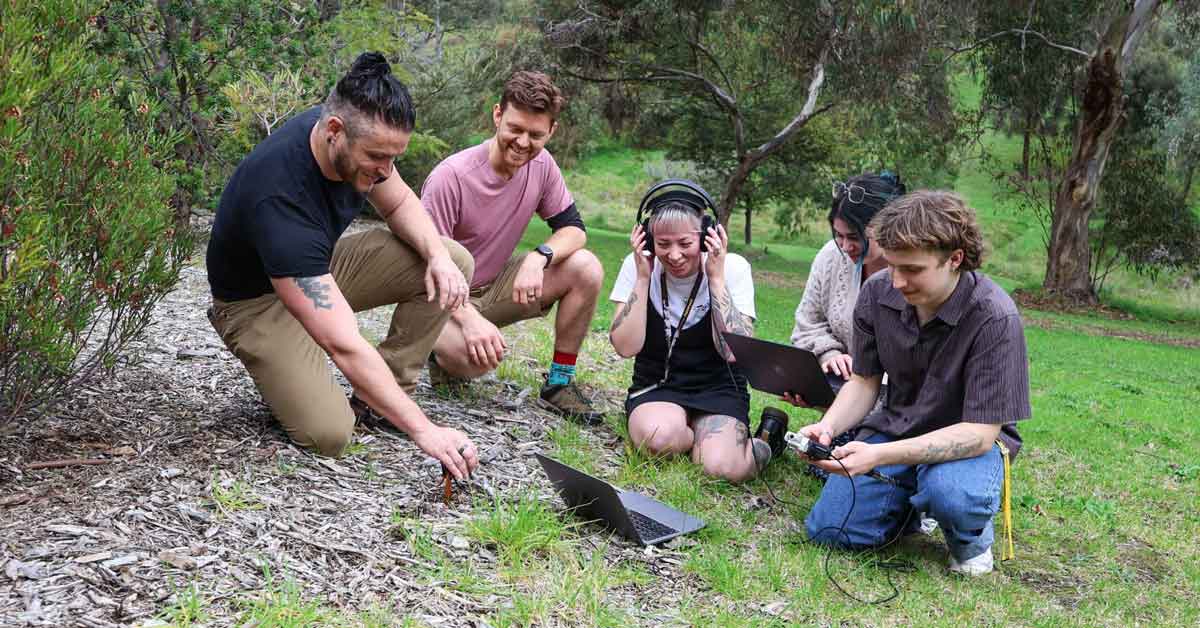The average pediatric wheelchair can cost thousands of dollars. And when children grow and their needs evolve — or a wheelchair gets damaged — those costs multiply.
So, the team at MakeGood NOLA, a New Orleans-based adaptive design lab, has made something that can transform the world for disabled children.
“Introducing the world’s first fully 3D-printed wheelchair,” MakeGood founder and president Noam Platt started a recent social media video.

He wheels a small, almost toy-like lime-green wheelchair into the frame, complete with a matching harness, suitable for children ages 2 to 8.
“Everything from the body, to the wheels, to the tires, the seat, and even the straps, all were 3D printed on a regular Bambu Labs A1 machine,” Platt continued.
This means the design is fully compatible with a regular 3D printer anyone can have in their home.
“We designed this to be modular and easy to make,” Platt continued. “Really, anyone with a 3D printer and some filament can download the files and print it.”
Once the prototype is completely finished, it will be available as a fair-use download that anyone can use for free.
Platt said that because it has a modular design, the wheelchair can be put together without any tools or glue. And if any part of it breaks or is damaged, users can simply re-print the single piece they need.
“As a wheelchair user I love everything about this,” TikTok user @thisisharlie commented on Platt’s video debuting the wheelchair.
“Mine costs more than my car, I can’t imagine having to buy a new one every year or two as they outgrow it,” @thisisharlie continued. “You’re going to change the world.”
For Platt, that’s always been the plan.

When he created MakeGood in 2021, the nonprofit design lab was thinking of the more than 1 billion people around the globe who live with disabilities.
“Since traditional design often overlooks diverse bodies and minds, it is crucial to reshape the built environment,” MakeGood shares on its website. “The challenges our communities face — both physical and social — are solvable.”
MakeGood works with individuals to co-create their adaptive design solutions, centering the “Need Knower,” the disabled person or their primary caregivers, throughout the entire process.
Since the founding of MakeGood, 1,600 individualized adaptive devices have been delivered to families for free. Platt’s team found a niche with this wheelchair, which they call the Toddler Mobility Trainer, or TMT.
On its website, the organization says the wheelchairs were “designed with therapists from all over the world” and offer “unmatched mobility and independence to young kids.”
Children and parents agree.

“It’s an A+,” one parent said of an earlier prototype of the TMT in a report by CBS News. “It’s helped [my son] become more mobile and be able to adapt into the other things that he’s going to be offered. It’s helped his development.”
At the start of the design process, Platt reached out to area hospitals to see if he could fill a need.
“Part of it is empowering clinicians that we can go beyond what is commercially available,” Platt told CBS News. “We can really create almost anything.”
Now in the final stages of tweaking the TMT design to be ready for release, Platt is eager to get the wheelchair rolled out and into the homes of the children who need them most.
“We think this sort of 3D printing and design is going to be huge for accessibility, and for wheelchairs specifically,” Platt said in his social media video.
In the meantime, people can request a free chair from MakeGood.

“We have a growing list of people who’ve requested these, and once we finish the design, we’ll start filling those requests with custom-printed chairs, including things that you might need for your particular chair,” Platt said in a follow-up video.
Because the chairs are easily 3D printed, they can come in any color and can be modified to include other accommodations, like a section to hold a breathing device or other aid. With years of customization and design experience under his belt, this new innovation is simply an extension of Platt’s dedication to inclusive design.
In 2023, Platt told New Mobility: “I feel like every time I deliver one of these [assistive] devices, I get a hopeful feeling that the world has been changed a little bit for the better for the next generation.”
Header image courtesy of MakeGood NOLA



